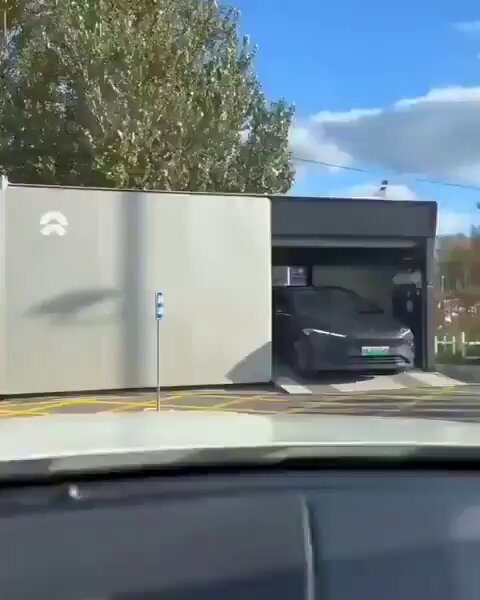In the rapidly evolving world of electric vehicles (EVs), Xiao Peng has made a significant leap forward with its latest innovation: a battery swapping system that can replace an EV’s battery in just three minutes. This groundbreaking technology promises to address one of the most significant challenges faced by EV owners ”charging time.
The Promise of Battery Swapping
Battery swapping technology is not entirely new, but Xiao Peng approach sets a new benchmark in terms of speed and efficiency. Traditional EV charging can take anywhere from 30 minutes to several hours, depending on the charger type and the vehicle’s battery capacity. In contrast, Xiao Peng battery swapping system can complete the process in just three minutes, making it comparable to the time it takes to refuel a conventional gasoline vehicle.
How It Works
The battery swapping process involves a fully automated system where the depleted battery is removed from the vehicle and replaced with a fully charged one. This system is designed to be user-friendly and efficient, minimizing downtime for the vehicle owner. The technology is particularly beneficial for fleet operators, ride-sharing services, and urban EV owners who may not have easy access to private charging stations.
Industry Context and Comparisons
Xiao Peng’s innovation is part of a broader trend in the EV industry towards improving charging infrastructure and reducing the time required to recharge vehicles. Companies like Ample, Nio, and Geely have also been exploring battery swapping technologies. For instance, Ample offers a five-minute battery swapping solution targeting fleet vehicles and private owners. Their modular battery design allows for flexibility and cost savings, making it an attractive option for urban environments and fleet operations.
Read more about Ample’s battery swapping technology
Similarly, Geely’s Zeekr brand has introduced a new electric vehicle charging solution that offers a 500 km range after just 15 minutes of charging. This advancement in charging technology provides a significant market advantage for Zeekr and highlights the industry’s focus on reducing charging times.
Learn about Geely’s new charging solution
Benefits and Challenges
Benefits
- Reduced Downtime: The primary advantage of battery swapping is the significant reduction in downtime for EV owners. A three-minute swap is comparable to the time it takes to refuel a gasoline vehicle, making EVs more convenient for long-distance travel and daily use.
- Increased Adoption: Faster battery swapping can accelerate the adoption of EVs by addressing one of the main concerns—charging time. This technology can make EVs more appealing to a broader audience, including fleet operators and urban residents.
- Scalability: Battery swapping stations can be deployed in urban areas, along highways, and at fleet depots, providing a scalable solution to the charging infrastructure challenge.
Challenges
- Standardization: One of the significant challenges of battery swapping technology is the lack of standardization across different EV manufacturers. Each brand may have its own battery design, making it difficult to create a universal swapping system.
- Infrastructure Costs: Setting up battery swapping stations requires significant investment in infrastructure. This includes the cost of automated systems, real estate, and a stockpile of batteries to ensure availability.
- Battery Lifecycle Management: Managing the lifecycle of swappable batteries is another challenge. Ensuring that batteries are maintained, charged, and recycled properly is crucial for the sustainability of the system.
Future Prospects
The introduction of Xiao Peng’s three-minute battery swapping technology marks a significant milestone in the EV industry. As more companies invest in and develop similar technologies, we can expect to see a more robust and efficient charging infrastructure emerge. This will not only benefit individual EV owners but also support the growth of electric fleets and public transportation systems.
In India, for example, the government is promoting battery swapping for electric buses to enable seamless interoperability at battery swapping stations. This initiative aims to reduce infrastructure requirements and improve the efficiency of public transportation.
Read about India’s battery swapping norms for e-buses
Conclusion
Xiao Peng’s three-minute battery swapping technology is a game-changer in the EV industry. By significantly reducing charging times, it addresses one of the main barriers to EV adoption. As the industry continues to innovate, we can look forward to advancements that will make electric vehicles a viable option.
Check out more AI tools.
Elevate Guest Experience with RoomGenie
Textify Analytics – Affordable Insights at the Speed of AI
